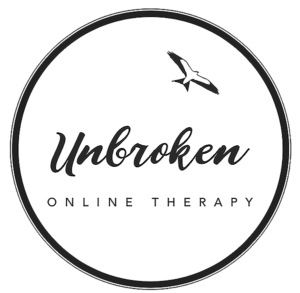

THERAPY FOR TRAUMA
Online Psychotherapy for Complex Trauma and PTSD in Oregon and Florida
Did you experience trauma?
Many people struggle with the word trauma, because they think of the combat veteran or war survivor.
But trauma can come in different forms as well.
But trauma can come in different forms as well.
What is trauma?
Trauma is the response to overly stressful life experiences. The response to trauma has different stages and layers. The first reaction is denial and shock. Longer term effects can be emotional outbursts, flashbacks, strained relationships, etc.
The oxford dictionary defines trauma as “a deeply distressing or disturbing experience” or “physical injury”. The first is considered an emotional trauma and the second a physical trauma to the body.
An emotional trauma is the response to overly stressful life experiences. For example a natural disaster, being assaulted, a car accident, but also being abused or neglected during childhood.
The trauma symptoms vary. There is no one size fits all.
The oxford dictionary defines trauma as “a deeply distressing or disturbing experience” or “physical injury”. The first is considered an emotional trauma and the second a physical trauma to the body.
An emotional trauma is the response to overly stressful life experiences. For example a natural disaster, being assaulted, a car accident, but also being abused or neglected during childhood.
The trauma symptoms vary. There is no one size fits all.
Do I have trauma?
If you experienced a distressing or disturbing event, were subject to repeated physical, sexual, or emotional abuse, were neglected as a child, or experienced a sudden death of a loved one, you've most likely experienced trauma.
Trauma responses have different stages. Some people might have emotional responses, like shock, anger or sadness. And some might experience denial. Physical responses are common as well, such as headaches, fatigue, racing heart, and sleep disturbances.
It’s helpful to figure out what type of trauma you’re struggling with. The most commonly know are Acute Stress Disorder and Post-traumatic Stress Disorder. Complex trauma is a more severe form of PTSD.
Trauma responses have different stages. Some people might have emotional responses, like shock, anger or sadness. And some might experience denial. Physical responses are common as well, such as headaches, fatigue, racing heart, and sleep disturbances.
It’s helpful to figure out what type of trauma you’re struggling with. The most commonly know are Acute Stress Disorder and Post-traumatic Stress Disorder. Complex trauma is a more severe form of PTSD.
You want to leave your past behind …
Learn to cope with your triggers and stressful situations.
You want to resolve your past trauma and live more freely.
I'll teach you coping skills to manage trauma triggers while also exploring the root cause of them.
Often anxiety and panic attacks can develop after stressful life experiences and trauma.
See my anxiety section for more info.


Trauma Treatment
You want to learn how to let go of the past and live a fulfilled life.
It is possible to recover from traumatic experiences. If you're struggling with complex trauma it will take time to uncover your responses and learn new coping mechanisms. So be patient and kind with yourself. Years of abuse can not be healed miraculously within a short time period. For PTSD and Acute Stress Response a few eye movement sessions can sometimes be enough to work through the traumatic event. I'll tailor the treatment specific for your needs. You will learn new coping skills, discover your stress responses, and learn how to identify triggers.
It is possible to recover from traumatic experiences. If you're struggling with complex trauma it will take time to uncover your responses and learn new coping mechanisms. So be patient and kind with yourself. Years of abuse can not be healed miraculously within a short time period. For PTSD and Acute Stress Response a few eye movement sessions can sometimes be enough to work through the traumatic event. I'll tailor the treatment specific for your needs. You will learn new coping skills, discover your stress responses, and learn how to identify triggers.
About Me
Learn more about me and what Unbroken Counseling can offer to you.
Blog
Click here to read my most recent blog posts.
Anxiety & Panic
Learn more about Anxiety and Panic.
FAQ
Head to my FAQ page to learn more about the services I offer and how teletherapy works.
Start your journey of healing now!
It is possible to recover from childhood trauma and PTSD. Don't wait any longer. Reach out for help now.
You don't have to continue living with painful memories and flashbacks.
You don't have to continue living with painful memories and flashbacks.
Different types of trauma:
Acute stress Disorder: Acute stress (shock, denial) response during the first month after experiencing a traumatic event.
PTSD: Can start 1 month after traumatic event and last up to many years. It includes avoidance of places or people that can be reminders of the trauma.
Complex Trauma: Usually develops after numerous traumatic events. People of childhood abuse, domestic violence, etc. can develop complex trauma.
PTSD: Can start 1 month after traumatic event and last up to many years. It includes avoidance of places or people that can be reminders of the trauma.
Complex Trauma: Usually develops after numerous traumatic events. People of childhood abuse, domestic violence, etc. can develop complex trauma.
